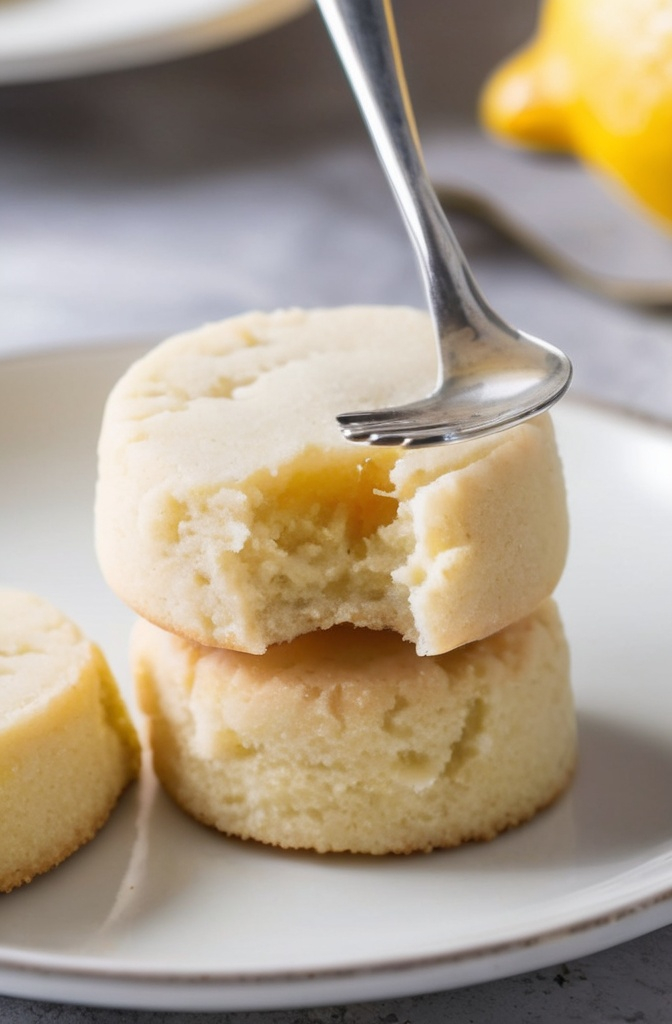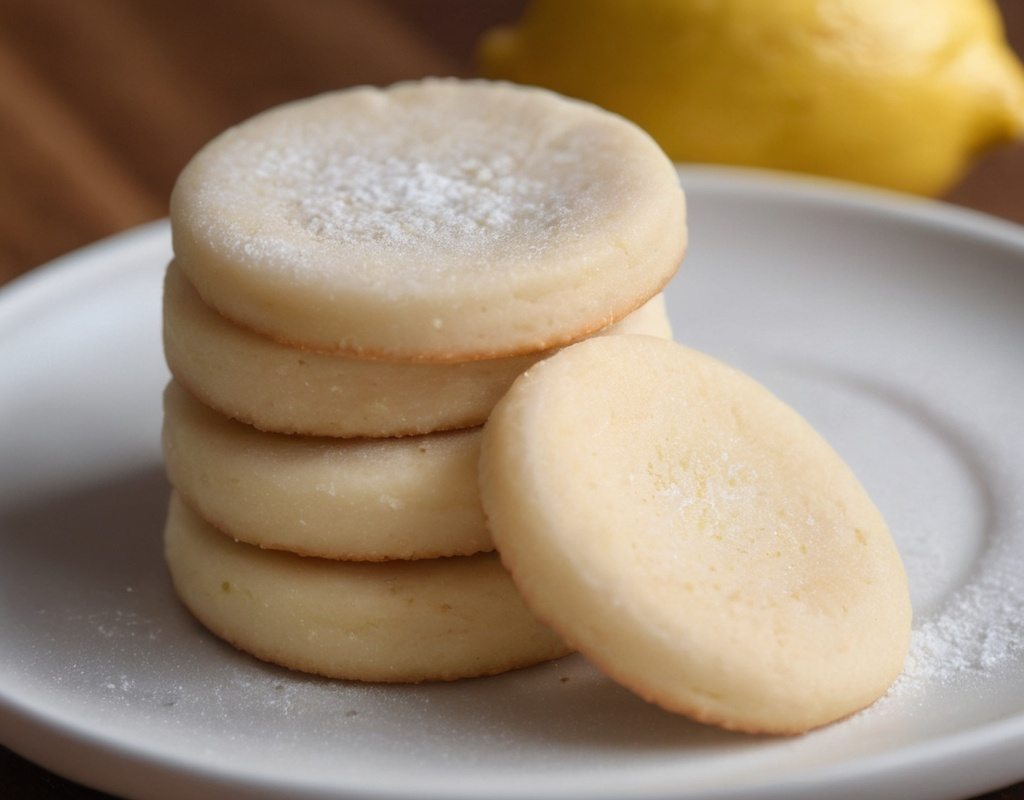Lemon shortbread cookies are an absolute delight for anyone who loves the combination of zesty citrus and rich buttery goodness. These cookies, simple yet sophisticated, combine the delicate crispness of shortbread with the vibrant tang of lemon, making them irresistible to anyone who tries them. In this article, we will take a deep dive into the world of lemon shortbread cookies, exploring everything from their history to their perfect preparation, and give you insights into how to make the best batch of these delicious treats.
Lemon shortbread is a classic cookie, but it’s the versatility of the lemon that sets it apart from traditional shortbread. There’s something about the sharp, refreshing flavor of lemon that cuts through the buttery richness, giving the cookies a balanced taste. Whether you’re baking them for an afternoon tea, a holiday, or just because, these cookies have a way of brightening up any occasion. They are a perfect example of how a simple recipe can be elevated by the right combination of flavors and techniques.
The History Behind Shortbread and the Evolution of Lemon Shortbread
Shortbread has been around for centuries, originating in Scotland in the 12th century. It was originally made using simple ingredients: butter, sugar, and flour. The shortness of the dough, which refers to the crumbly, tender texture, comes from the high butter content. The inclusion of lemon into shortbread is a more modern twist, though citrus flavors have been paired with baked goods for centuries.
Adding lemon to shortbread is not just a random decision; it makes sense from a flavor standpoint. The natural acidity of lemon helps balance the richness of the butter and sugar. When you add lemon zest, you introduce not only tangy flavor but also aroma, which enhances the sensory experience of the cookie. Today, lemon shortbread cookies are enjoyed worldwide, and many bakers have put their own unique spin on the classic recipe.
Why Lemon Shortbread Cookies Are So Popular
Lemon shortbread cookies stand out because they embody the perfect blend of textures and flavors. The contrast between the buttery crunch of the shortbread and the bright, slightly tart flavor of lemon makes them incredibly satisfying. In addition, the flavor profile is subtle enough that it’s not overpowering, making these cookies perfect for pairing with a cup of tea or coffee. You don’t need to be a trained pastry chef to appreciate why these cookies are so beloved. The simplicity of the recipe is key to their appeal.
Another reason these cookies have stood the test of time is their versatility. The base of shortbread can be enhanced in many ways, and lemon is just one of the most popular flavor variations. You can add lemon zest for an extra burst of citrus, incorporate lemon juice for added tartness, or even drizzle a lemon glaze over the top for an extra level of sweetness and shine. It’s a cookie that offers both variety and consistency.

The Art of Making Perfect Lemon Shortbread Cookies
Perfecting the lemon shortbread cookie recipe is all about balance. Too much lemon, and you risk overwhelming the delicate shortbread texture. Too little, and you miss the point of adding citrus to the dough in the first place. The key to a perfect batch is knowing how to adjust the levels of butter, sugar, lemon zest, and flour.
When preparing lemon shortbread, using the right butter is essential. High-quality butter, preferably unsalted, ensures the rich, creamy texture that shortbread is known for. The butter should be softened but not melted, as this helps it blend easily with the sugar. The sugar should be a fine granulated type to contribute to a smooth texture, and don’t skimp on the lemon zest. Fresh zest is where much of the flavor comes from, so it’s worth investing the time to zest a lemon properly.
You’ll want to be mindful of the flour-to-butter ratio to ensure the cookies hold together but don’t become dense or dry. Overworking the dough can cause the cookies to lose their delicate texture, so be gentle when mixing. Rolling out the dough evenly ensures uniform baking, while chilling the dough before cutting shapes helps prevent spreading in the oven.
How to Incorporate Lemon Flavor into Shortbread Cookies
Lemon flavor can be added to shortbread cookies in several ways. The most common method is to use lemon zest, which gives a concentrated burst of citrus aroma and flavor. Another approach is to add fresh lemon juice, which will add moisture and a slightly more sour taste. Some bakers also incorporate a combination of both zest and juice for a more rounded lemon flavor.
The choice between zest and juice—or both—depends on the desired flavor intensity. Zest delivers a bright, aromatic citrus note without making the dough too wet, while juice adds moisture and tartness. Be careful with the amount of juice you use, as too much can alter the cookie’s texture. A common rule of thumb is one tablespoon of juice for every two lemons of zest.
For an even more complex flavor, some bakers add lemon extract or even a small amount of lemon oil. However, these ingredients should be used sparingly, as they can overpower the natural lemon flavor. Fresh ingredients, like zest, provide a more authentic and subtle flavor profile that stands up better against the richness of the shortbread.
Common Mistakes When Making Lemon Shortbread Cookies
Even seasoned bakers can run into problems when making lemon shortbread cookies. One common issue is using too much lemon juice, which can make the dough too sticky and affect its texture. It’s important to be precise when adding liquid ingredients. Another mistake is using old or dried-out zest. Fresh zest contains the oils that give the cookies their distinct lemon flavor, so using old lemons can result in bland cookies.
Overbaking is another pitfall. Lemon shortbread should be slightly golden around the edges but still pale in the center. If you bake them too long, they can become too dry and lose the tender, melt-in-your-mouth texture that shortbread is known for. It’s better to err on the side of underbaking slightly, as the cookies will continue to cook on the baking sheet once removed from the oven.
Finally, some bakers forget that chilling the dough is crucial for a clean cut when shaping the cookies. The dough can be a bit soft, and if you try to cut it too soon, the cookies can spread and lose their shape. Chilling the dough also helps the flavors to meld, resulting in a more pronounced lemon taste.

Elevating Your Lemon Shortbread Cookies
To take your lemon shortbread cookies to the next level, consider adding a glaze. A simple lemon glaze made from powdered sugar and lemon juice can enhance the sweetness while adding an extra layer of tangy flavor. A drizzle of glaze on top of each cookie will not only make them visually appealing but also give them a shiny, polished finish. For added texture and flavor, you can sprinkle a little bit of lemon zest or even candied lemon peel on top of the glaze.
Another way to elevate your lemon shortbread cookies is by incorporating herbs. Basil or thyme pairs surprisingly well with lemon, giving the cookies a fresh, aromatic twist. These herbs complement the sharpness of the lemon and can add an unexpected depth of flavor.
Some bakers experiment with different coatings or fillings, such as rolling the dough in sugar before baking, creating a sugary crust. Another popular approach is to sandwich two cookies together with lemon curd, adding a velvety smooth texture and extra richness to each bite. These small changes can transform your lemon shortbread into a signature creation.
Conclusion: The Timeless Charm of Lemon Shortbread Cookies
Lemon shortbread cookies are a testament to the beauty of simplicity in baking. The combination of buttery shortbread and the tangy zest of lemon creates a perfect balance that satisfies the palate. Though they are easy to make, the art lies in perfecting the balance between the ingredients and ensuring that the delicate texture of the shortbread is maintained. Whether you stick to the classic version or get creative with glazes and fillings, lemon shortbread cookies will always be a favorite for bakers and cookie lovers alike.
By following the right techniques, using fresh ingredients, and paying attention to the small details, you can create a batch of lemon shortbread cookies that are sure to impress. Whether you are a professional pastry chef or a home baker, this timeless treat offers endless possibilities for customization, making it a go-to recipe for any occasion.
FAQs About Lemon Shortbread Cookies
1. What makes lemon shortbread cookies different from regular shortbread?
Lemon shortbread adds citrus flavor from lemon zest or juice to the buttery, crumbly texture of regular shortbread, creating a balance of richness and tang.
2. Can I use bottled lemon juice instead of fresh lemon juice?
Fresh lemon juice is recommended for better flavor and aroma. Bottled lemon juice lacks the freshness of real lemons.
3. How do I prevent my lemon shortbread cookies from spreading too much?
Chill the dough for at least 30 minutes before baking to prevent spreading. Also, use the correct butter-to-flour ratio.
4. Can I use margarine instead of butter?
Margarine can be used, but it will slightly alter the flavor and texture. Butter gives the cookies richness and a tender bite.
5. How can I store lemon shortbread cookies?
Store in an airtight container at room temperature for a week. For longer storage, freeze for up to 3 months.
6. Can I make lemon shortbread cookies ahead of time?
Yes, you can refrigerate the dough for up to 48 hours or freeze it for longer storage before baking.
7. What is the best way to incorporate lemon flavor?
Use fresh lemon zest for the best flavor. You can also add a small amount of lemon juice for extra tang.
8. Can I add other flavors to lemon shortbread cookies?
Yes! Try adding herbs like basil or thyme, or use lemon curd as a filling for added flavor.
9. Why do my lemon shortbread cookies turn out too dry?
They might be overbaked, or there could be too much flour or not enough butter. Check the baking time and ingredient measurements.
10. Can I use a cookie cutter for shaping the dough?
Yes, but make sure to chill the dough first to keep the shapes intact during baking.
11. How do I know when my lemon shortbread cookies are done?
When the edges are golden but the centers are still pale. Take them out slightly early to avoid overbaking.

Mariana is a passionate home cook who creates delicious, easy-to-follow recipes for busy people. From energizing breakfasts to satisfying dinners and indulgent desserts, her dishes are designed to fuel both your body and hustle.
When she’s not in the kitchen, she’s exploring new flavors and dreaming up her next recipe to share with the Foodie Hustle community.

